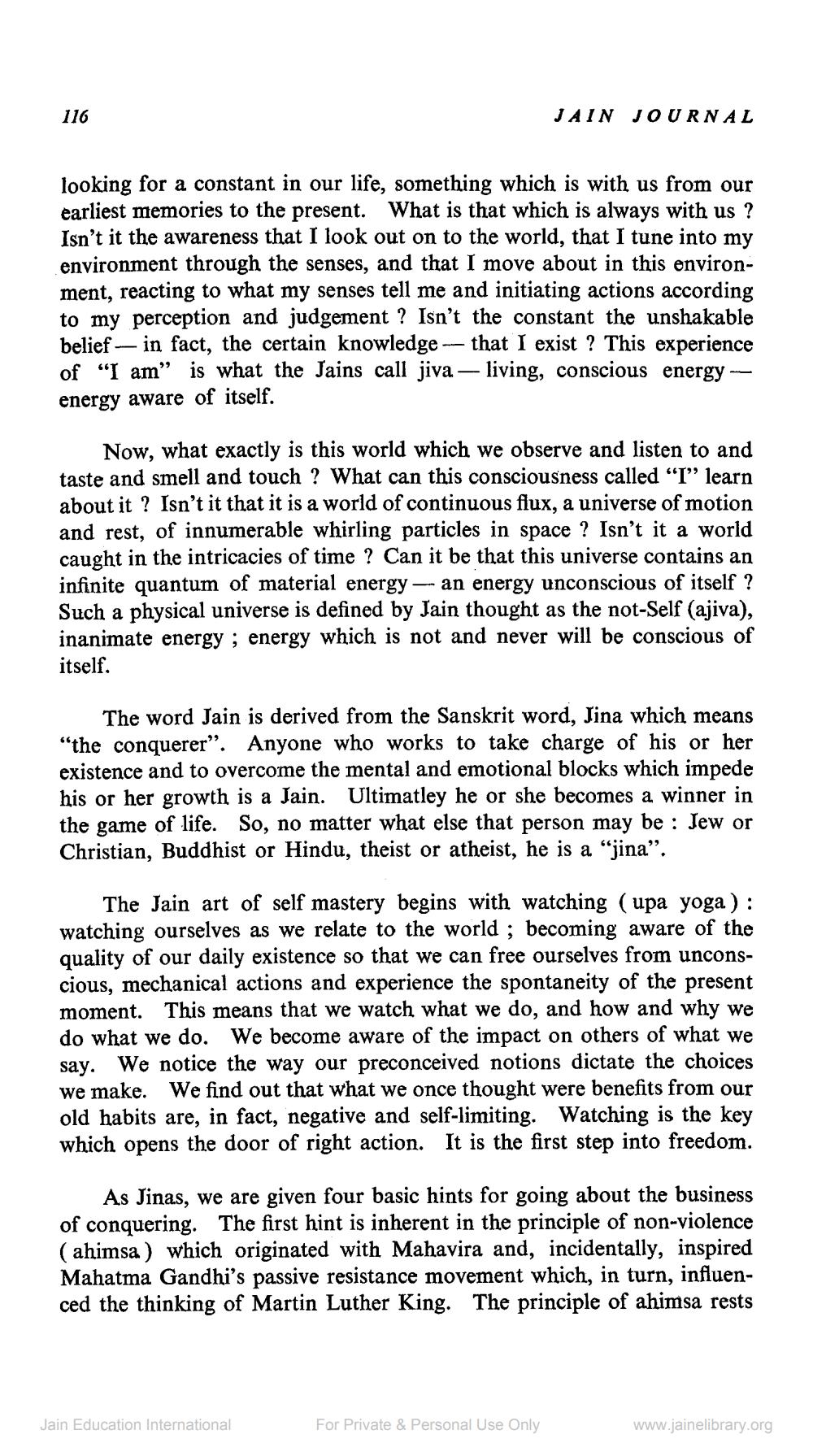________________
116
JAIN JOURNAL
looking for a constant in our life, something which is with us from our earliest memories to the present. What is that which is always with us ? Isn't it the awareness that I look out on to the world, that I tune into my environment through the senses, and that I move about in this environment, reacting to what my senses tell me and initiating actions according to my perception and judgement ? Isn't the constant the unshakable belief — in fact, the certain knowledge — that I exist ? This experience of “I am” is what the Jains call jiva — living, conscious energyenergy aware of itself.
Now, what exactly is this world which we observe and listen to and taste and smell and touch ? What can this consciousness called “I” learn about it? Isn't it that it is a world of continuous flux, a universe of motion and rest, of innumerable whirling particles in space ? Isn't it a world caught in the intricacies of time ? Can it be that this universe contains an infinite quantum of material energy -- an energy unconscious of itself ? Such a physical universe is defined by Jain thought as the not-Self (ajiva), inanimate energy ; energy which is not and never will be conscious of itself.
The word Jain is derived from the Sanskrit word, Jina which means "the conquerer". Anyone who works to take charge of his or her existence and to overcome the mental and emotional blocks which impede his or her growth is a Jain. Ultimatley he or she becomes a winner in the game of life. So, no matter what else that person may be : Jew or Christian, Buddhist or Hindu, theist or atheist, he is a "jina”.
The Jain art of self mastery begins with watching (upa yoga) : watching ourselves as we relate to the world ; becoming aware of the quality of our daily existence so that we can free ourselves from unconscious, mechanical actions and experience the spontaneity of the present moment. This means that we watch what we do, and how and why we do what we do. We become aware of the impact on others of what we say. We notice the way our preconceived notions dictate the choices we make. We find out that what we once thought were benefits from our old habits are, in fact, negative and self-limiting. Watching is the key which opens the door of right action. It is the first step into freedom.
As Jinas, we are given four basic hints for going about the business of conquering. The first hint is inherent in the principle of non-violence ( ahimsa) which originated with Mahavira and, incidentally, inspired Mahatma Gandhi's passive resistance movement which, in turn, influenced the thinking of Martin Luther King. The principle of ahimsa rests
Jain Education International
For Private & Personal Use Only
www.jainelibrary.org




